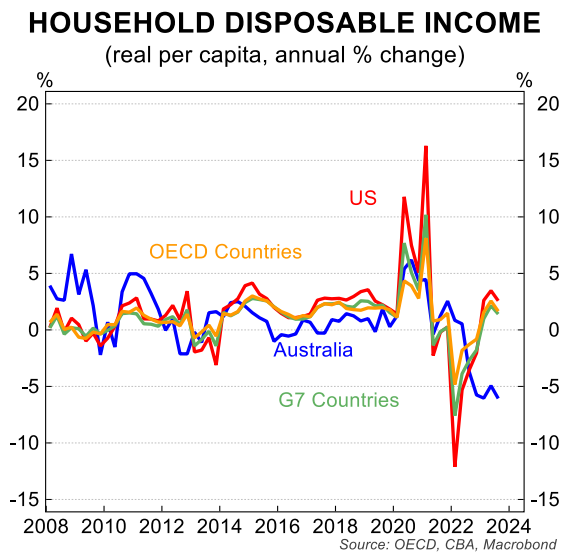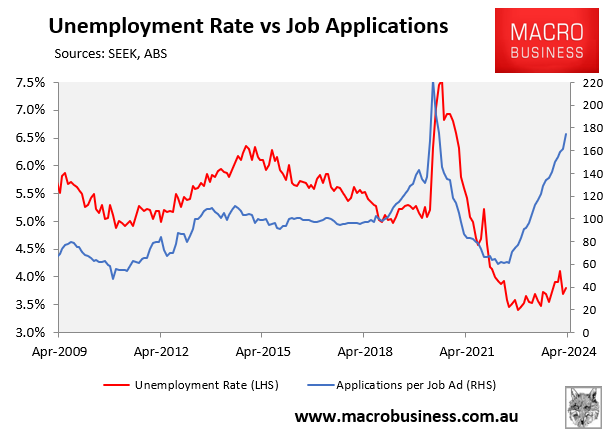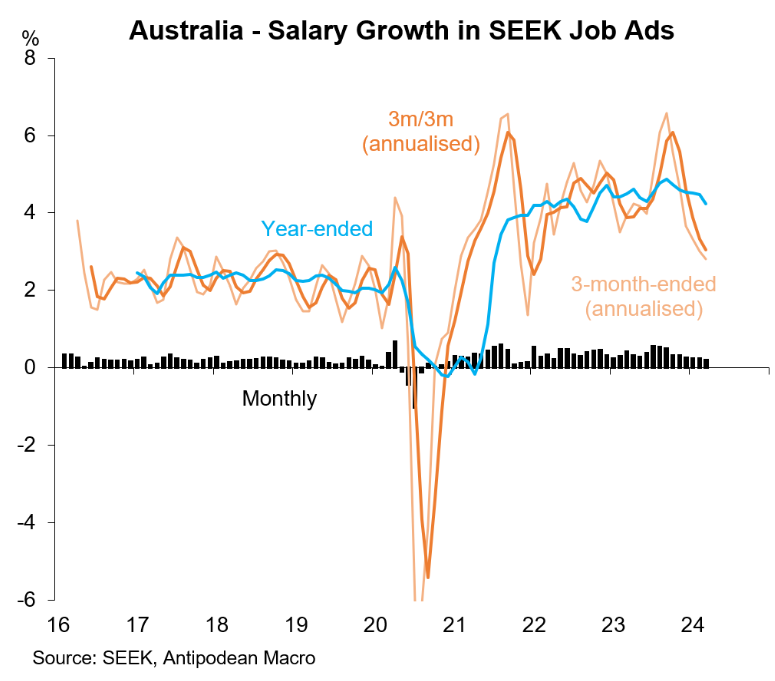Last year, Treasurer Jim Chalmers presided over the biggest decline in real per capita household disposable income in the world, with Australian household incomes plunging by 6%:

Now Jim Chalmers is promising better days ahead for Australian households, with new Treasury modelling suggesting that real household incomes will climb by at least $2800 next financial year.
“Treasury has forecast Australians real disposable income will grow by 3.5% in 2024-25 due to increased wages, lower inflation and more take-home pay via the stage three tax cuts”...
“Mr Chalmers said a combination of stronger wages, tax cuts and easing inflation would result in Australians having more to spend on the things they need”.
“This is all part of a big focus in the budget on helping to ease cost of living pressures”, Chalmers said.
To be sure, household disposable incomes will get a kick along from Stage 3 tax cuts, with the average worker estimated to keep an extra $1888 of their wage in 2024-25 compared with the current financial year.
Household disposable incomes will also likely benefit from rate cuts; although there is uncertainty over their timing and magnitude.
The area where Jim Chalmers is spinning fairy tales is wage growth, which he says will be “stronger” next financial year.
Stronger wages are highly unlikely given the labour market is being flooded with migrant labour into a slowing economy.
This has seen the number of applicants per job ad soar way above normal pre-pandemic levels:

This surge in workers relative to jobs will necessarily stifle wage growth, putting downward pressure on real household incomes.
We have already seen Seek’s advertised salaries series lose momentum over the most recent quarter:

Given that unemployment and underemployment rates are certain to rise in the quarters ahead, overall wage growth will very likely stall next financial year.

